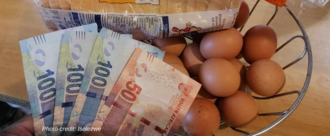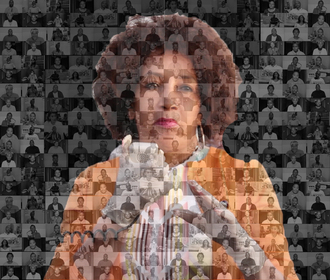- Featured
- Clean air
- Climate justice
- Consumer Rights
- Corporate Accountability
- Data access
- Early Childhood Development
- Economic fairness
- Education
- Electoral fairness
- Environmental justice
- Food justice
- Gender based violence
- Grants/social assistance
- Health
- Housing and infrastructure
- Industry interference
- Land Justice
- LGBTQIA+ rights
- Media/ information access
- Public transport
- Racism
- Reparations
- Safety
- Sanitation
- Service Delivery
- Sexual and Reproductive Rights
- Social justice
- Unemployment
- Womxn's rights/ gender equality
- Workers' rights
- More
-
Stop closed door meetings between government and big businesshttps://youtu.be/nuVHJT_rhgI Imagine your teacher smoking in the classroom. For some of us, this was the reality until new rules were put in place by government in 1993 [6]. But why had government not acted sooner? In their paper published in 2003, Mia Malan and Rosemary Leaver outline the relationship between the biggest tobacco business and government [7] [8]. Government eventually put public health before profits, thanks to the work of health advocates. But big businesses are still using their power to protect their profits at our expense. Researchers have pointed out that big businesses have worked to delay and delegitimize important health policies by using their associations and different strategies [9]. Researchers and civil society groups are not allowed to attend a standing meeting between the National Department of Health and big food businesses [9]. State capture has shown us we have a lot of work to do. But we are making some progress in improving transparency and accountability. Politicians have to declare financial interests [10], and political parties now must disclose who funds them [11]. We need to keep building on this momentum. We can't afford to have a repeat of 2014 where big businesses that make food like polony did not agree with government's proposed hygiene rules and instead wanted to self-regulate [12] [13]. Government should have stood up to those big businesses in 2014 and put the new rules in place anyway. Government has to stand up to big business bullies. Their job is to serve the people, not private interests. References can be found here: https://amandla.mobi/big-business-bullies-references8,399 of 9,000 SignaturesCreated by amandla mobi member

-
WE DEMAND THE CITY OF CAPE TOWN WITHDRAW THE UNCONSTITUTIONAL UNLAWFUL OCCUPATION BY-LAWThe unlawful occupation by-law, gazetted on the 14th of February 2022 undermines the constitution and circumvents the PIE ACT. This by-law deviates from the Human Settlements Strategy which provides that the City should “proactively plan for informality.” The Unlawful Occupation By-law contradicts this aim, it seeks to criminalise poor and working-class people who have fallen through the cracks of the city’s housing waiting list. The City’s by-law on unlawful land occupation seeks to bypass the protections of PIE. It also provides the so-called “City officials” with large amounts of arbitrary and discretionary power over poor and working-class people.270 of 300 SignaturesCreated by Aphiwe Ngalo
-
Minister Motshekga, keep South African schools as alcohol-free zones!!This is an issue that affects everyone in our society - learners, educators, school admin staff, and anyone who has, or will have, a child in the school system. There is a saying that 'it takes a village to raise a child'. Well, it takes a caring society to protect its children from exposure to the risk of harm. Alcohol use is already a major problem in our country. Schools in some communities already face the challenge of having large numbers of liquor outlets around them and very close to them. Some already have problems with alcohol being used on their premises. Making it possible for schools to have liquor for the purpose of fund-raising simply increases the risks for all of those at schools - learners, educators, admin staff, and even family members who interact with the school. If schools have a problem raising funds, government and society must work with them to address it in other ways - allowing schools to raise money through liquor is not the answer. We should be better than that as a society, as South Africans. We call on you to join us in urging the government to scrap the sections in the BELA Bill which will allow liquor on school premises and at school events. Support the call for a complete ban on liquor on school premises (except for personal use by staff who live on school property). Demand better funding models for our schools so that all children have access to quality education in a safe and protected environment. Fly a blue ribbon at your school in support of the campaign; wear blue ribbons as a group as you participate in school activities. Write to the Minister at [email protected] to tell her what you think of the alcohol clauses in the BELA Bill. Write to the Portfolio Committee in Parliament by 15 June to register your opposition to the alcohol clauses in the Bill - Mr Llewellyn Brown, the Committee Secretary via email: [email protected] or online at https://forms.gle/MoC6AdbdQyYPk3Y49 or via WhatsApp: +27 60 550 9848. Mr Llewellyn Brown can be reached on 083 709 8450 for enquiries. Download the BELA Bill from https://www.parliament.gov.za/storage/app/media/Bills/2022/B2_2022_Basic_Education_Laws_Amendment_Bill/B2_2022_Basic_Education_Laws_Amendment_Bill.pdf Together we can win this one!6,192 of 7,000 SignaturesCreated by Southern African Alcohol Policy Alliance in SA (SAAPA SA)

-
Minister Patel - reject the EU & US ‘bad deal’ - this deal does not save lives!After 17.5 months of dragging their feet, negotiations are currently underway to reach a quick ‘deal’ at the World Trade Organisation (WTO) on the TRIPS WAIVER proposal - boldly led by South Africa and India since October 2020. MInister Patel is in charge of the negotiations for South Africa. The leaked text of the proposed ‘deal’ shows they are not negotiating a waiver, as originally requested, but rather, conditions and clarifications, which after this much time and deaths, represents a poor compromise. It will be a shame if Minister Patel supports the bad deal contained in the leaked text. He should not. The leaked text represents the interests of the EU and the US and other vested interests. It is a very bad ‘deal’ that does almost nothing to advance the demand for equitable access to vaccines (and other health products) for the majority of the world’s population - and yet the poorest and most marginalised everywhere have suffered the worst effects of the pandemic. The South African Government should REJECT this deal which is related to the ongoing TRIPS Waiver negotiations for fairer access to COVID-19 technologies for everyone, everywhere. We call on organisations and individuals in South Africa to sign onto an ‘Open Letter’ to Minister Patel and the South African Government. You can read and sign the letter here: https://forms.gle/GTT9kmf9nECFfSF86 For more information on the leaked text and reactions to it, please see: https://healthjusticeinitiative.org.za/2022/03/24/trips-waiver-negotiations-leaked-text/148 of 200 SignaturesCreated by Health Justice Initiative and African Alliance

-
Help stop convicted woman abuser Koffi Olomide concert in Nairobi, KenyaKoffi Olomide has a documented history of violence directed at women. In March 2019 he was convicted of statutory rape in France and between 2002 and 2006, sexually assaulted his dancers [2]. In July 2016, he was deported from Kenya for assaulting one of his dancers [3]. Allowing him to perform in Kenya right after the 16 Days of Activism to End Violence Against Women and Girls global campaign, right after Human Rights Day, and right before Jamhuri Day would undermine the victims of his actions and derail all the progress our country has made in the fight against GBV. Neither of these scenarios must be allowed nor tolerated, as Kenya already has a GBV crisis and must not reward perpetrators with platforms such as this. It is all our moral responsibility to ensure Kenya does not become a magnet for foreign criminal elements, especially those that violate the human rights of women and girls. [1] https://www.kenya24news.com/lifestyle/koffi-olomide-set-for-nairobi-concert/203042-news [2] https://www.bbc.com/news/world-africa-47615273 [3] https://africa.cgtn.com/2016/07/23/koffi-olomide-deported-by-kenya-after-he-assaulted-one-of-his-dancers/253 of 300 SignaturesCreated by Stop Koffi Olomide Collective KE
-
Pres. Ramaphosa must use presidential pardon to #FreeMartha now!Martha Libuseng Marumo is a survivor of domestic violence. She spent many years of her marriage trying to keep herself safe from her sexually and physically abusive husband. After years of trying to get help from the police to escape this violence, Martha was told by them that they could not help her because “it is a family matter” [1]. In the end, after many attempts to free herself she took the law into her own hands and killed her husband. In 2005 she was given a life sentence for killing her husband in defense of herself and her children. She recently shared details of her story at the National Gender-based Violence (GBV) summit on how her husband would beat her, force himself on to her, and take away her agency as a woman. Martha’s story isn’t unique but is one of many tragic examples of how the justice system fails women, and other survivors of gender-based violence. Everyday women interact with this unjust system when they try to escape violent and abusive situations. Enough is enough! A recent police report also showed that 59% of South Africans feel dissatisfied with the courts [2]. Our country needs to fix this system that stigmatises survivors and lets perpetrators walk free. It’s time that the judicial system chooses a side: does it care about survivors or does it protect perpetrators?1,051 of 2,000 SignaturesCreated by Yolanda Dyantyi
-
Stand with the families of Life EsidimeniDespite promises of a monument, and government officials vowing to apologise to each individual grieving family, government has done nothing. We, in support of the bereaved family members, demand accountability for the violations of human rights of mental healthcare users in the province and call on government to admit its wrongdoings publicly through the construction of the “Living Monument” and the five focused facilities to be attached to existing clinics in all five regions in Gauteng, as envisaged by the Life Esidimeni Family Committee. A formal inquest into the deaths due to the Gauteng Mental Health Marathon Project will begin in Pretoria on 19 July 2021. A Judge will assess evidence surrounding each of the mental healthcare users’ deaths and make recommendations about potential criminal liability on the part of government officials and NGO owners. While we want those responsible for this atrocity to be put in jail, we acknowledge that mental healthcare users in the province remain vulnerable and under-supported due to an uncaring government that has failed to prioritise their needs. This issue needs more visibility, as society’s treatment of people with mental illness is currently characterised by stigma and silence, which make life harder for mental healthcare users and their loved ones. A monument will contribute to efforts to combat stigma against mental healthcare users. We cannot turn a blind eye to the needs of some of the most vulnerable groups of people in our society. They are our mothers and fathers, sons and daughters, brothers and sisters. We need a memorial to ensure this never happens again, and so that the memories of the lives lost in the Life Esidimeni tragedy is never forgotten. Never again can such a tragedy occur in our land.246 of 300 SignaturesCreated by SECTION27 Life Esidimeni Family Committee and SADAG

-
#ThePeopleSay #WakeUpSA: Raising our voices against state capture and corruptionWe have elected leaders and bestowed on them the responsibility to govern, to enable us to achieve a better life for all – not themselves. We, as people of South Africa, have a right to know in whose interests’ decisions – supposedly in "our” name – were and continue to be made. The culture of secrecy and impunity must come to an end if our democracy is to thrive. Transparency and accountability are non-negotiable, as too are the requirements for transformative actions to address the injustices that remain embedded in our social, economic and political systems. Our constitution is revolutionary in its design, but the values and vision that it prescribes can only materialise if embraced by the state through which it is enacted. As people of this country, we all support the value and vision in the Constitution which protects the rights of the people in our country, it is the bedrock of our democracy and foundation of the rule of law. We, the undersigned, support/endorse this open letter to raise our voices in solidarity against state capture and impunity, and to say now is the time for us to be heard. The realities of the current moment cannot be met with silence and complacency. #ThePeopleSay #Wake-Up SA! Civil Society endorsements: Alternative Information and Development Centre (AIDC) Centre for Applied Legal Studies (CALS) Council for the Advancement of the South African Constitution (CASAC) Corruption Watch (CW) Dullah Omar Institute (DOI) Equal Education (EE) Freedom Under Law (FUL) Legal Resources Centre (LRC) My Vote Counts (MVC) Open Secrets Organisation for Undoing Tax Abuse (OUTA) Public Affairs Research Institute (PARI) Section27 (S27) Southern African Faith Communities’ Environment Institute (SAFCEI) Right2Know (R2K)78 of 100 SignaturesCreated by Civil Society Working Group on State Capture (CSWG)

-
Stop Johannesburg's R50 recycling fee that threatens reclaimers' livelihoodStarting from 1 July, residents living in houses worth more than R350 000 could potentially pay a R50 “recycling fee” if the City of Johannesburg’s proposed waste management tariff is approved. The City said that the R50 additional levy will go to Pikitup to extend a separation at source (S@S) programme which has already been piloted in a few suburbs in Johannesburg. The City places the bill at the feet of “affluent” residents to extend the S@S pilot programme yet provides no research or statistics to support it. Residents are expected to buy into a system they know nothing about despite having very little trust in the government to provide services and use the money for its intended purpose. Not only does this recycling fee raise more questions and concerns for residents, it is a grave threat to the livelihood of reclaimers who depend on the collection of recyclables for their daily living. The extension of this project will decrease reclaimers’ access to bins which will significantly decrease their income. Reclaimers collect between 80 - 90 % of used packaging collected for recycling, saving municipalities millions of rands per year. The contribution of reclaimers cannot be overlooked or underestimated. There are alternatives to the City's proposal. As African Reclaimers Organisation (ARO), we have been piloting our own S@S programme, where we work directly with residents in Brixton and Auckland Park who separate materials for us. Instead of destroying our jobs, Pikitup should expand our pilot across the city. We call on residents to: 1. Sign this petition to stop the recycling fee and protect reclaimers’ jobs 2. Object to the recycling fee by completing this IDP comment form: https://share.hsforms.com/1xa2Cg-qnRxajkHAoDwsivw469tl (deadline is 8 May 2021) 3. Get in contact with ARO on Facebook/ Instagram or email to see how we can develop a resident-reclaimer S@S programme in your area No recycling without reclaimers! Social media: @africanreclaimers Email: [email protected]3,728 of 4,000 SignaturesCreated by Eli Kodisang
-
Bring back + increase R350 SRD grant until it's turned into Basic Income SupportTime has run out for the R350 SRD grant, but our leaders are feeling the pressure. Finance Minister Mboweni and National Treasury are already under fire for delivering an anti-poor austerity* budget and have ignored our urgent plea to extend the R350 SRD Grant. There is already some support for our demands. One of Parliament's Appropriations Committee members, Mr Qayiso, said the “Rate of unemployment is so high...it has reached an alarming crisis. It [Extending the SRD] is a fair request and must be considered” [1]. Other Members of Parliament also voiced their support [2] after we ensured that members of the committees on finance and appropriations heard directly from those who will be hit hardest by the decision to cut the R350 SRD grant; low-income Black women [3]. Theresa Linden, one of the campaign supporters, told Members of Parliament that “We are struggling, we are still sitting in a lockdown and not getting full salaries...hope Treasury can see that and help the people in South Africa to alleviate the poverty”. Small jobs here and there are not enough to put enough food on the table, and many jobs don’t pay enough. Our leaders can not guarantee good jobs for everyone, but they can guarantee Basic Income Support so our people can live with dignity. It’s been nearly 20 years since the Taylor Commissions Report recommended a Basic Income Grant [4]. We are sick of our leaders being all talk and no action. The R350 SRD grant is a stepping stone to implementing the decades’ overdue Basic Income Support for those aged 18 to 59. Over a quarter of a million people have added their names demanding Basic Income Support is urgently implemented [5]. [1] Standing Committee on Appropriations Public Hearings 12 March 2021 via Parliament of the Republic of South Africa Youtube Channel. [2] Joint Meeting: Standing Committee on Finance and Select Committee on Finance, 3 March 2021 via Parliament of the Republic of South Africa Youtube Channel. [3] https://fb.watch/4j7AZtEtI5/ [4] Basic Income Grant: Briefing and Economic Feasibility - Social Development, 13 November 2002 [5] https://awethu.amandla.mobi/petitions/basic-income-support-for-aged-18-to-59-now *Austerity refers to strict and harsh decisions and policies that cut social spending that a government can put in place to deal with debt65,905 of 75,000 Signatures
-
Lindiwe, what happened to the R600 million in Rent Relief?On 21 July 2020 the Minister of Human Settlements, Water and Sanitation Lindiwe Sisulu announced in her budget vote speech that her Department planned to allocate R600 million towards rental relief to tenants in affordable housing facing financial distress due to the COVID 19 pandemic. The funding, aimed at tenants in ‘formal affordable housing’ was meant to help those facing potential homelessness to meet their monthly rental obligations. This in turn would assist landlords who depended on rental income to survive. In her speech, the Minister made the undertaking that the details of the rent relief for such tenants would be published 30 days after her address.[2] IT IS NOW MORE THAN EIGHT MONTHS FOLLOWING THIS COMMITMENT AND NO DETAILS OF THE RELIEF SCHEME; NO POLICY PUBLISHED, AND NO FUNDING HAS BEEN RECEIVED BY TENANTS, WHO MAKE UP SOME OF THE PEOPLE HARDEST HIT BY THE PANDEMIC IN OUR COUNTRY. The stark reality is that between 2.2 and 3 million people lost their jobs in the first months of lockdown.[2] This has created a situation where households are caught in a double bind between maintaining their shelter and having enough food and water to stay alive. Correspondingly, the TPN Residential Rental Monitor for the fourth quarter of 2020 found that low end tenants had the weakest rental payment performance. Specifically, the report states that: “the “Less than R3,000/month” rental segment is populated by the most financially fragile tenant population, with significantly fewer financial “buffers” with which to weather any storms that translate into income loss, or those unexpected household expenses that arise periodically.” [3] In fact, the undertaking to provide R 600 million in rent relief was made to prevent the crisis that many of the 3 720 000 tenants [4] living in South Africa may now find themselves in. Albeit too little too late for tenants who have fallen victim to unlawful action by landlords and service providers across the country.[5] The consequences of these shortcomings taken together might be even more dire: on 9 March 2021, DA Shadow Minister of Cooperative Governance and Traditional Affairs, Mr Cilliers Brink announced that the party is calling for the urgent lifting of Alert Level 1 lockdown regulations stating that the regulations make it “close to impossible” for property owners to obtain eviction orders.[6] We are teetering on the brink of a secondary national disaster where we stand to exacerbate a health crisis into a homelessness crisis. The former UN Special Rapporteur on the Right to Housing Leilani Farha has cautioned that “[i]n the face of this pandemic, a lack of access to adequate housing is a potential death sentence for people living in homelessness”[7]. Home has rarely been more of a life or death situation – Housing remains Healthcare! JOIN US IN DEMANDING THAT THE NATIONAL DEPARTMENT OF HUMAN SETTLEMENTS, WATER AND SANITATION DO THEIR JOB URGENTLY. [1] https://www.gov.za/speeches/minister-lindiwe-sisulu-human-settlements-dept-budget-vote-202021-21-jul-2020-0000# [2]https://cramsurvey.org/wp-content/uploads/2020/07/Spaull-et-al.-NIDS-CRAM-Wave-1-Synthesis-Report-Overview-and-Findings-1.pdf [3]https://www.tpn.co.za/Group/Home/Media [4] http://www.statssa.gov.za/publications/P0211/P02114thQuarter2020.pdf [5] https://www.iol.co.za/personal-finance/government-needs-to-subsidise-tenants-rentals-50528669 http://www.statssa.gov.za/publications/P0318/P03182019.pdf [6]https://www.da.org.za/2021/03/da-calls-for-lifting-of-lockdown-regulations-to-restore-private-property-rights [7]https://www.ohchr.org/Documents/Issues/Housing/SR_housing_COVID-19_guidance_rent_and_mortgage_payers.pdf1,724 of 2,000 SignaturesCreated by Mpho Raboeane
-
Call on the North West Provincial Government to release the Mafereka Commission ReportHelp us strengthen the voices of the Bapo Ba Mogale community in their quest to make the findings of the Mafereka Commission report public. We need your support today! Our demand: We call upon the North West premier to release the Mafereka Commission Report. A report that will assist the Bapo Ba Mogale community in establishing a proper governance structure. The Mafareka Commission is one of many commissions of inquiry established by the North West Province to fact-find the existence of a rightful traditional leadership. Commissions of inquiry should advance values of accountability and participatory democracy. In the absence of transparency, affected communities and interested parties are unable to engage the findings of the commission and the purpose of the commission becomes compromised. [1] https://www.corruptionwatch.org.za/nw-silence-on-mafereka-report-infuriates-mining-communities-2/ [2] https://www.corruptionwatch.org.za/mining-communities-lack-proper-governance-and-support/545 of 600 SignaturesCreated by Corruption Watch
.png)

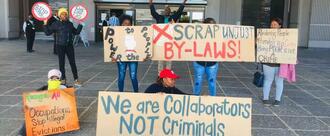
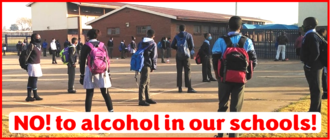


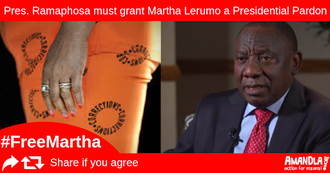

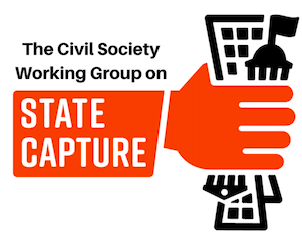
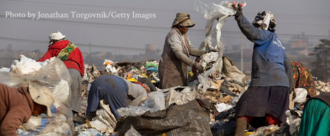.png)
